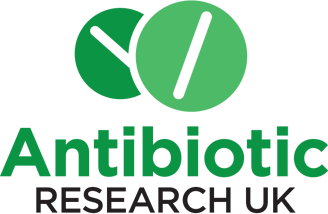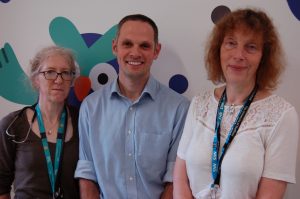Money from our small grants scheme has enabled Sheffield Children’s Hospital to develop the career of one of health care’s brightest young researchers and improve the treatment of children with chest complaints.
A pilot programme examined the effect of antibiotic resistance in children attending hospital outpatient services. This has led to further research funding and could become a game-changer in the way children are treated for one of their most common ailments – wet cough.
Chronic wet cough in children has many causes, but one of the commonest is Protracted Bacterial Bronchitis or PBB. It is caused by persistent bacterial infection in the airways and the treatment is with antibiotics. Many children need repeated courses of antibiotics for wet cough. Sometimes these children have so many episodes that they are put on low doses of an antibiotic called azithromycin for the winter to try to keep this problem at bay. However, when antibiotics are over-used or misused, bacteria in the body can become resistant to antibiotics. This renders them useless in the battle against serious infections.
The study
The Sheffield pilot study led by Professor Alison Condliffe along with paediatric clinical colleagues Dr Fiona Shackley and Dr Kelechi Ugonna and paediatric registrar Dr Simon Hardman, divided the patients into two groups. Both groups of children had PBB, with one group of children given the preventative antibiotic and the other, not. They took swabs from the back of the nose and throat to look at the bugs living there and their antibiotic resistance profiles.
“The swabs revealed a high level of resistance to a particular bug that can cause chest infections including pneumonia in both groups, far higher than in the general population” revealed Dr Simon Hardman. Dr Hardman is the Clinical Research Fellow and Paediatric Registrar at Sheffield Children’s Hospital. “Not all patients had this bug found in their samples but many did. 96% of those that we found were resistant to azithromycin and similar antibiotics. That is worrying. It didn’t seem to matter if the patients were on the low dose antibiotic or not. This suggests it might be the frequent use of antibiotics in this group that was causing the resistance.”
Professor Colin Garner, chief executive of Antibiotic Research UK, agreed. “That is a staggering proportion of children who have bacteria that is averse to antibiotics. They now have a lifetime of trying to fight conditions from urinary tract infections to pneumonia with no really effective defence. This is why the world needs to sit up and take notice of what Sheffield Children’s Hospital has researched.”
Further work
The pilot programme has prompted further funding from the Sir Halley Stewart Trust. The trust are a grant-giving Christian organisation committed to helping humankind flourish and prevent suffering. This will enable the researchers to look more widely at the disturbances caused to the ‘good’ as well as ‘bad’ bacteria in the upper airways of children with PBB. The preliminary data found by the team was also submitted as part of a multi-million pound grant. The Sheffield team were among 3 groups shortlisted for the award.
Professor Alison Condliffe, Consultant in Respiratory Medicine at Sheffield Children’s Hospital, added: “We simply could not have got the larger grant from the Sir Halley Stewart Trust without first completing the pilot study funded by ANTRUK. This is a subject we have talked about for years, but now we have some pivotal data. The pilot also has given a boost to the career of a promising researcher. Dr Hardman is the principal investigator on the new grant. Opportunities like this need to be created for our promising young clinical researchers. That way, careers don’t stumble on the starting blocks.”
Professor Garner concluded: “As a small charity we are only able to give out limited funds. But, how Sheffield has used that resource to further children’s medicine locally, nationally and internationally. I am delighted the pilot has given them the opportunity to lever more money. With COVID-19 still raging, you do not need me to remind you of the devastation chest complaints can bring. The health service and the city of Sheffield should be thoroughly proud of the team.”
Pictured left to right: Dr Fiona Shackley (Consultant in Paediatric Diseases and Immune Deficiency), Dr Simon Hardman, (Clinical Research Fellow and Paediatric Registrar) and Professor Alison Condliffe, (Consultant in Respiratory Medicine, Sheffield Children’s Hospital).


